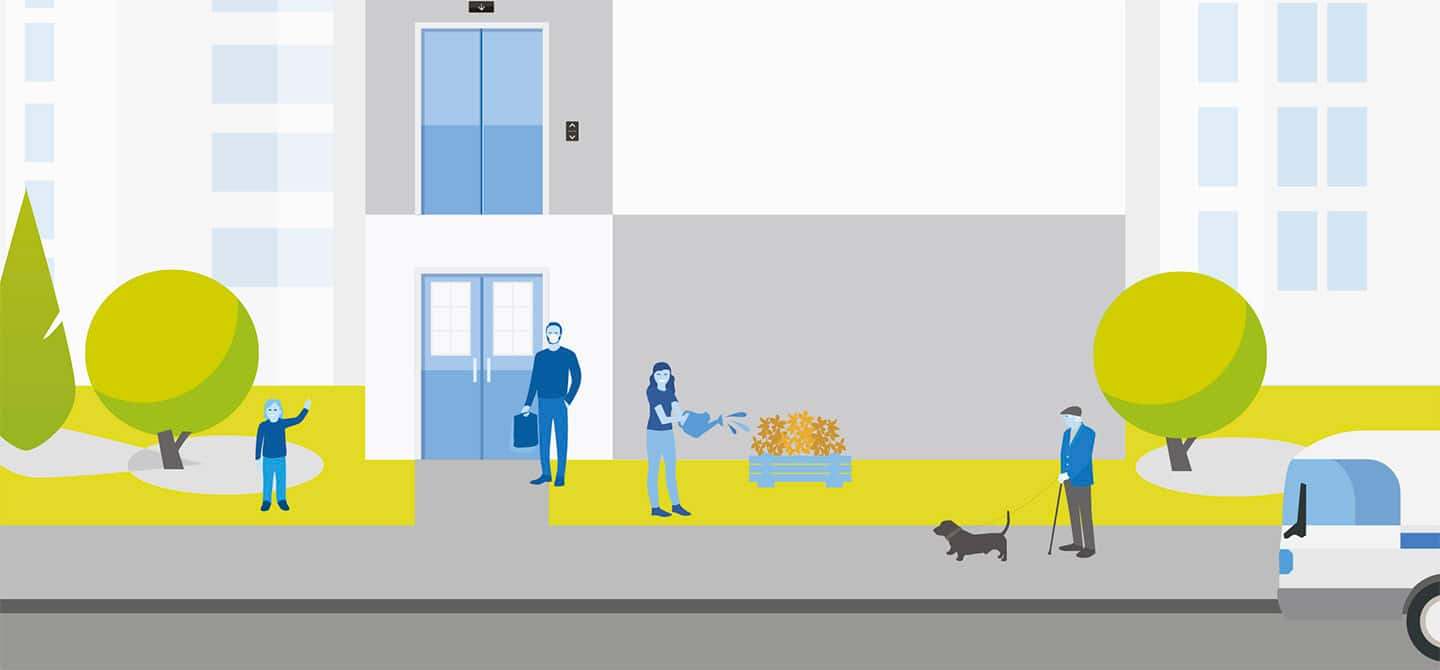Many of us have been spending a lot of time at home over the past weeks and months. As restrictions ease and more and more people start moving outside their homes, the tenants of residential constructions need to rethink how they move through common spaces and adapt new safety practices. Being considerate of others and practicing good hygiene goes a long way toward keeping everyone safe.
The regular and thorough cleaning of shared surfaces is, of course, important, and it makes sense to use building technologies like KONE Residential Flow, which enable touchless journeys within buildings. And there are actions each of us can take to limit the spread of microbes as we journey in our buildings.
1. Stop! Don’t Enter a Full Elevator. Wait for the Next One (Or Take the Stairs if You Can).
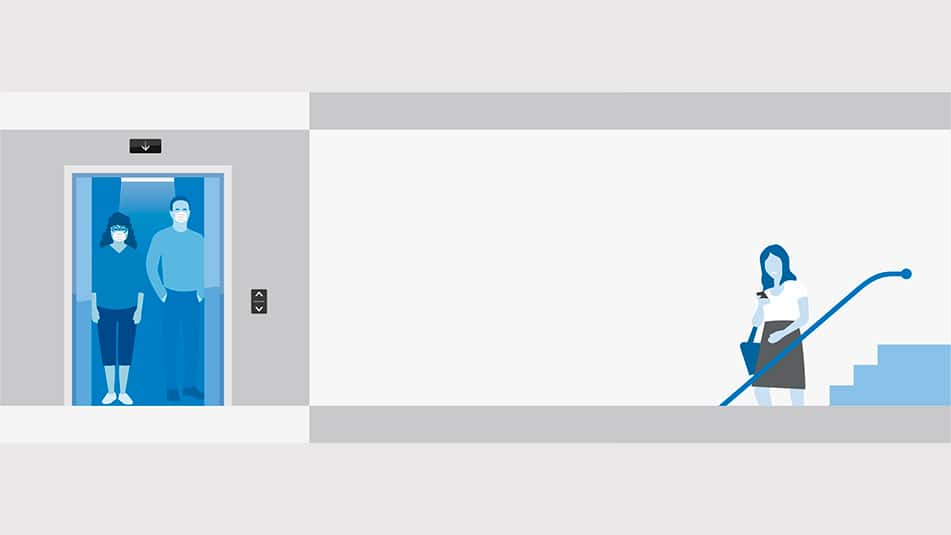
Taking the stairs offers more room to spread out, even if you are moving from floor to floor at the same time as someone else. Take this as an opportunity to get those extra steps in for your daily exercise if you are physically able.
If you need to take the residential elevator, be mindful of how many people are already in the car and be sure you are able to keep a safe distance if you do enter.
2. Keep your hands to yourself. Avoid touching surfaces and instruct your children to do the same.
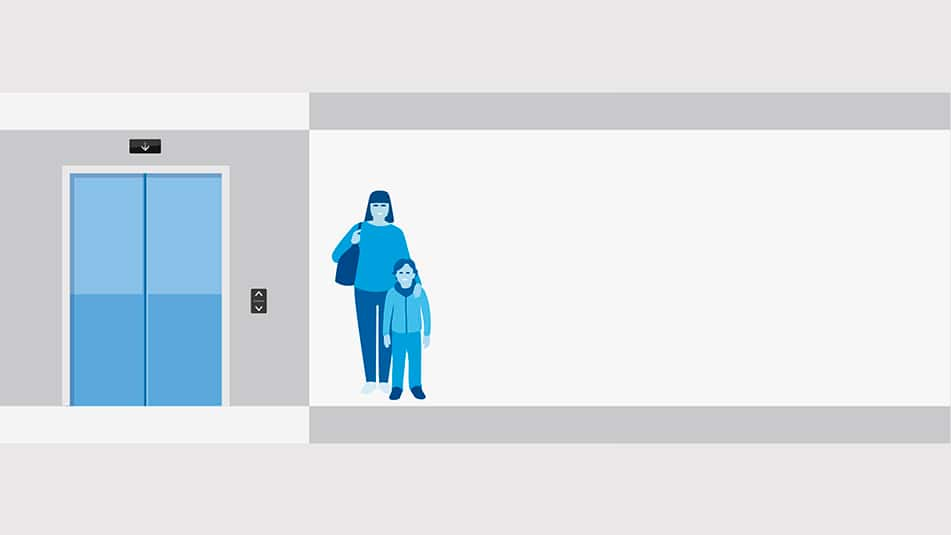
It’s not easy to break the habit of reaching out to press the elevator buttons or touching shared surfaces like walls or banisters. But now is the time to keep your hands to yourself. If you really must touch a surface, cover your hands with gloves or with a cloth or (disposable) tissue. If you do use your bare hands, wash them with soap and water or clean them with an alcohol-based disinfectant as soon as you can.
3. Be Mindful. Give Priority Use of the Elevator to Those Who Need It Most.
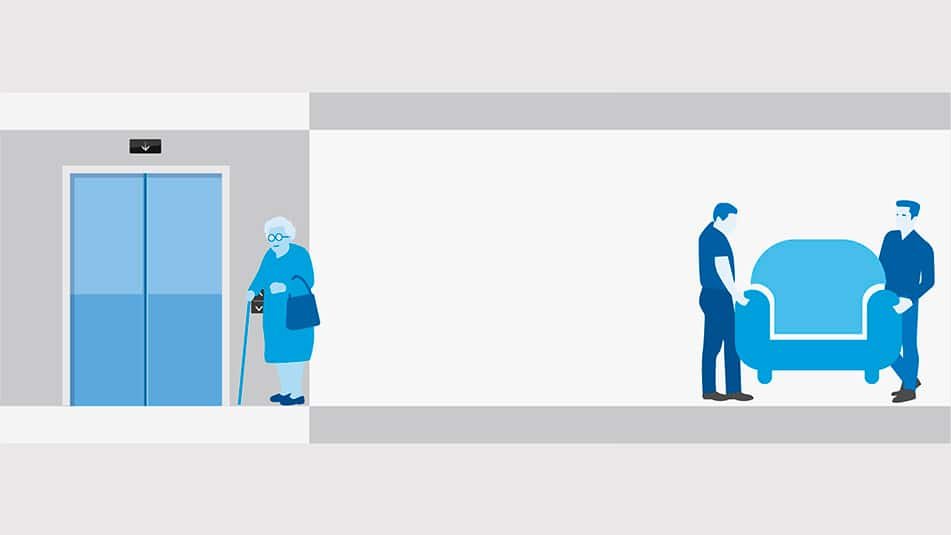
This is a stressful time, not just for you but for everyone. Be courteous of people in different circumstances and let the elderly, people with limited mobility, small children, pregnant women and people carrying deliveries use the building elevator first. Remember that we are all in this together and looking out for one another improves our collective sense of well-being.
4. Give Yourself (And Others) Some Space.
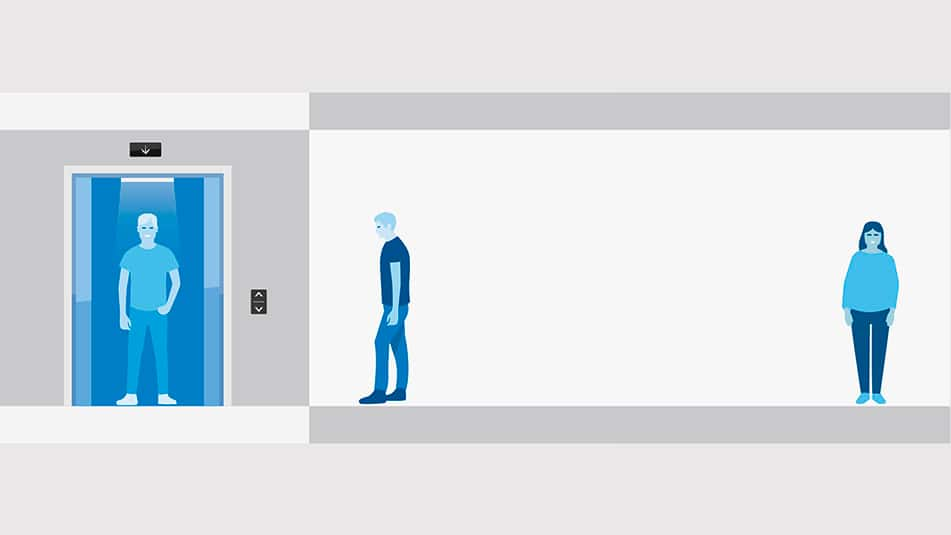
It’s not rude to keep your distance. In fact, people even expect it now. You can still wave and say hi, and be neighborly and friendly, all while standing at least 1-2 meters away from one another.
Be especially mindful when entering or exiting an elevator. Give enough space to those exiting before entering, and even turn your face away from others when passing to limit virus transmission through respiratory droplets.
5. Something amiss? Reach out to KONE.
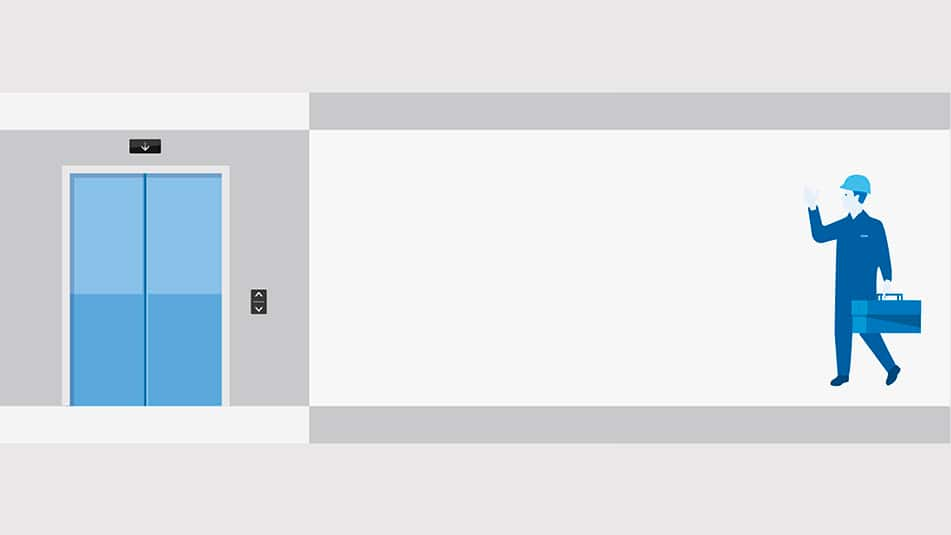
It is more important now than ever to get people to their destinations smoothly and to reduce crowding and bottlenecks. KONE company’s Customer Care Centers around the world are staffed with professionally trained responders who speak your language and know your equipment and your situation. Contact them (or ask your facility manager to do so) if you notice anything unusual with the elevator lifts in your building.
6. Stay safe. Keep your hands clean and wear a mask if instructed by local authorities to do so.
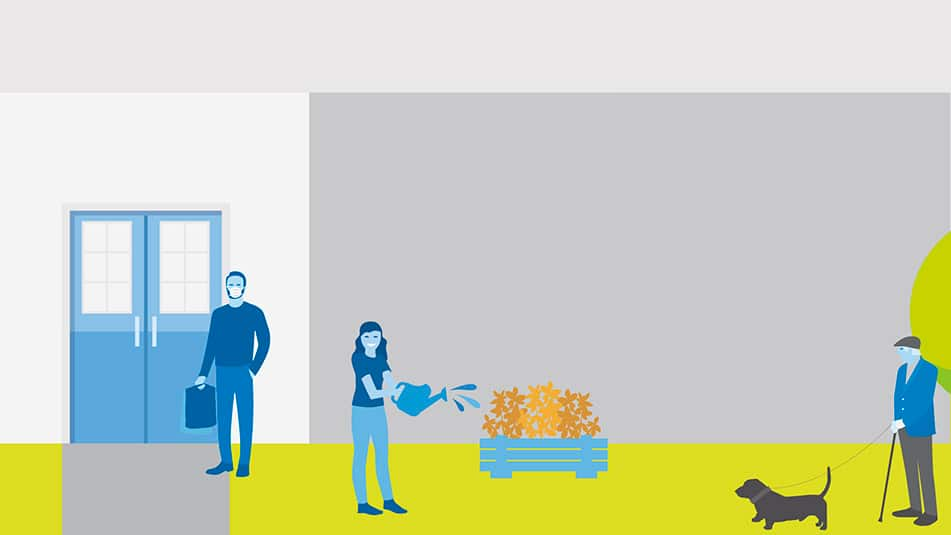
Adopting preventive habits in common areas with lots of shared surfaces is particularly important. Practices such as wearing a mask, and washing or sanitizing your hands before and after entering shared spaces, are small acts that can make a big difference.
Together we’ll get through this.
READ MORE:
Rethinking how we live, work and play in cities
Elevator etiquette for staying healthy
Solutions for a healthier new urban normal
Smarter surfaces, cleaner elevators
KONE health and well-being solutions
